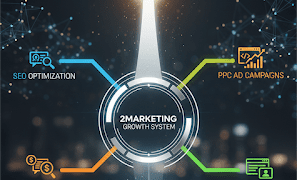Hiring a pay-per-click agency that delivers measurable ROI starts with knowing exactly what outcomes you expect and how to verify them. Businesses of all sizes need partners who combine data-driven strategy with transparent reporting.
The right agency defines key metrics upfront, sets realistic budgets, and continually refines campaigns for maximum return. Focusing on agencies with verifiable past performance and open dashboards reduces wasted spend and ensures every dollar works harder, turning ad spend into sustained growth.
Define Campaign Goals and ROI Expectations Early
Setting expectations upfront helps avoid confusion later. Before meeting agencies, outline your business goals in specific terms. Do you want more inbound leads, product purchases, or app installs? Set your KPIs around those outcomes.
Discuss how return will be measured. Some industries rely on revenue, others on cost per lead. An effective pay per click agency will ask about these indicators early. Agencies that push impressions or traffic without tying them to real impact are unlikely to drive measurable gains.
Smart campaigns prioritize actions that actually grow the bottom line. Goals should be realistic, time-based, and broken into trackable milestones. The right agency helps translate these into daily or weekly benchmarks, keeping accountability front and center.
Prioritize Transparency and Real-Time Reporting
Access to live data matters. Agencies should offer dashboards that allow you to check performance without delay. Whether using Google Data Studio, Looker, or a custom tool, reporting must be clear and focused on value-generating activity.
Look for reporting that includes spend breakdowns by campaign, device, region, and audience. Highlighting high-performing keywords or ad groups helps with future budget decisions. Agencies that bury results in PDF summaries or only show monthly highlights often hide weak performance.
Top firms will review reports with you regularly. During check-ins, expect discussion on optimization decisions. This ensures you’re aligned on strategy and comfortable with how your money is being used.
Evaluate Track Record With Similar Businesses
Past success is the strongest signal of future performance. Review case studies of clients in similar industries, audience sizes, or budgets. A good pay per click agency should walk you through campaigns that align with your challenges and show how results were measured.
Hiring a pay per click agency with direct experience in your vertical makes the ramp-up phase more efficient. They’ll already understand your audience behavior, seasonal trends, and conversion benchmarks. That insight leads to stronger strategies with fewer wasted tests.
Ask about the agency’s experience with your type of customer journey. B2B lead gen requires different tactics than D2C eCommerce. An agency may excel with one and struggle with the other. If your funnel includes multiple touchpoints, the team must know how to track each one.
References can support what you see in case studies. Request direct contact with a few past clients. You’ll get honest feedback on responsiveness, reporting, and whether promises matched actual returns.
Understand Their Optimization and Testing Process
PPC success rarely comes from one perfect ad. Agencies must constantly test and adapt. Ask how they manage A/B testing, creative rotation, and keyword expansion. A data-driven agency will have defined systems for testing headlines, calls to action, and even landing pages.
Inquire about how an agency balances automation with manual oversight. Some lean heavily on AI-driven bid management tools, while others use hybrid models where humans review and refine decisions. What matters is understanding how these approaches improve return on spend, and how much visibility you’ll have into the changes being made.
What an Effective PPC Testing Routine Should Include:
- Regular A/B testing of headlines and descriptions,
- Scheduled creative refresh cycles,
- Ad group segmentation by audience behavior,
- Landing page variants linked to specific campaigns,
- Keyword expansion tests with strict controls,
- UTM tagging for deeper behavioral tracking,
- Removal logic for low-performing elements.
The agency should also explain how poor-performing elements are phased out. Campaigns that plateau need to be restructured, not ignored. A proactive testing routine often separates strong performers from stagnant accounts.
Assess Budget Management and Cost Control Tactics
Efficient budget use leads to higher ROI. Agencies should have controls in place to prevent overspending. This includes daily limits, bid caps, and alerts for unusual spikes.
Smart Allocation Across Channels
Ask how they allocate spend across platforms. Some campaigns start on Google Ads, then expand to YouTube or Meta once traction builds. The right agency makes these moves based on performance, not preference.
Also, verify whether they recommend audience targeting over broader keyword expansion. Focusing on intent-based segments often lowers cost per acquisition. A good agency refines this regularly, reducing wasted impressions.
Tools and Controls That Prevent Overspend
Before signing, request a proposed media plan. This should show expected click volume, estimated conversions, and forecasted return, proving they’ve considered your budget beyond simple ad spend.
Reviewing the plan also helps you understand their strategic priorities and whether they align with your business goals. Agencies should be able to explain what mechanisms are in place to avoid accidental overspend. If spend spikes overnight or drops without explanation, you want alerts and intervention, not surprise invoices.
Clarify Team Structure and Communication Frequency
Daily management should not rely on a rotating junior team. Request to meet the strategist who will handle your account. Ask about their experience, certifications, and time allocation.
Understand whether you’ll be speaking with the same person each week or bouncing between departments. Smaller agencies often offer more consistency. Larger ones may assign multiple specialists to different campaign types.
Set expectations for communication rhythm. Weekly updates are standard, but some companies prefer biweekly or monthly calls. The more active your campaign, the more frequently you should meet.
You’re paying for more than execution. Strategic input and problem solving must be part of the relationship. An agency that only shows metrics without insights adds little value.
A Smart Choice Builds Long-Term Value
Hiring the right agency affects more than ad performance. It improves internal strategy, accelerates growth, and brings clarity to digital spending. With clear goals, full transparency, and aligned incentives, your investment does more than deliver traffic, it delivers outcomes.
Choose a partner that works like an extension of your team. Measurable ROI begins with the right people and the right process.



































